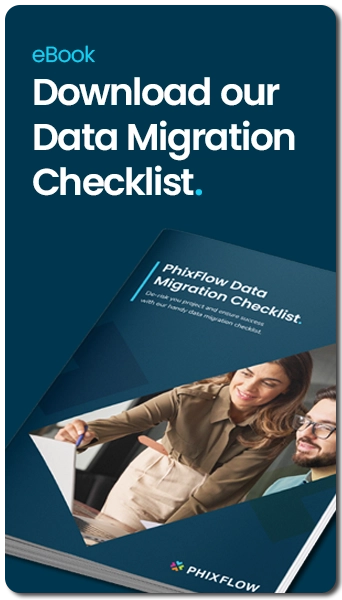Why you should focus on data integration
Data integration is essential for businesses to make informed decisions, improve operational efficiency, and gain a competitive edge. Learn why focusing on data integration is crucial for your success.
With almost all businesses (99%) in the UK handling digitised data of any type[1] it is somewhat surprising that only one fifth (21%)[2] are using the data to generate new insights and knowledge. This may be due to the problems associated with accessing data from multiple sources.
Data integration, the process of combining data from various sources into a unified view, emerges as a critical solution. By bridging the gaps between disparate systems, data integration empowers organizations to make informed decisions, optimize operations, and gain a competitive edge.
The benefits of data integration
Improved Decision Making
Access to a comprehensive view of data enables businesses to make more informed and strategic decisions.
- Example: A telecommunications provider uses integrated data from their Sales CRM, Customer Portal and Inventory Systems to analyse sales trends. This enables them to identify sales trends which helps to ensure they have enough of the right handsets in stock, whilst being able to make data-driven decisions on promotions and pricing.
Enhanced Operational Efficiency
Streamlined data processes will help businesses to identify inefficiencies, reduce costs, and improve overall productivity.
- Example: A water utilities provider continuously monitors meter readings to identify anomalies in the amount of water supplied. This enables them to identify potential leaks and ensure that repairs are carried out quickly.
Improved regulatory compliance
Businesses that operate in highly regulated sectors must ensure they are meeting the targets as set out by the regulators. The ability to monitor essential systems will help track progress against key KPIs and enable actions to be taken as early as possible.
- Example: A mobile telecommunications provider utilises data from operational systems to monitor emergency services call to track conformance and to help identify any potential connection issues.
Enhanced Customer Experience
Data integration can lead to a deeper understanding of customer behaviour, enabling businesses to tailor their offerings and provide exceptional service.
- Example: A customer service team integrates data from customer interactions, purchase history, and preferences to provide personalised support. This helps them anticipate customer needs, resolve issues more efficiently, and create a positive customer experience.
Competitive Advantage & Innovation
A unified data landscape fosters a culture of innovation by providing the foundation for new products, services, and business models.
- Example: A mobile telecommunications provider integrates data from network monitoring systems, customer service systems and billing systems to identify new trends and model new tariffs that meet the needs of the customer and aid retention.
Key considerations for successful Data Integration
Implementing a robust data integration strategy requires careful planning and execution. Here are some key considerations:
- Data Quality
Ensure that the data being integrated is accurate, consistent, and reliable. - Data Governance
Establish clear policies and procedures for managing data access, security, and privacy. - Technology Selection
Choose the right data integration tools and platforms to meet your organization’s specific needs. - Scalability
Design a solution that can accommodate future growth and changes in data volumes. - Integration Approach
Consider both batch and real-time integration methods based on your business requirements.
PhixFlow, your partner in Data Integration
Data integration is just the beginning of your journey to unleashing the benefits that your data holds. With PhixFlow you have an all-in-one platform that will allow you to:
- Connect your data
Choose from a library of pre-configured connectors and actions or create your own. - Analyse and fix your data
Identify any errors and automatically apply fixes to the data. - Scalable and high-performance data processing
PhixFlow handles large volumes of data with ease. - Create fully integrated business applications with ease
Our user-friendly, drag-and-drop interface makes it easy for both technical and non-technical users.
Streamline your data integration efforts, improve business outcomes, and gain a competitive advantage.
Summary
Data integration is no longer an option but a necessity for businesses seeking to thrive in the digital age. By leveraging the power of unified data, organizations can drive innovation, improve efficiency, and deliver exceptional customer experiences. PhixFlow is committed to helping businesses achieve their data integration goals and unlock the full potential of their data assets.
Contact PhixFlow today and see how we can help you integrate your data.
Next Steps
- Schedule a Free Demo of PhixFlow’s data development platform.
- Learn more about our solutions for the telco industry.
